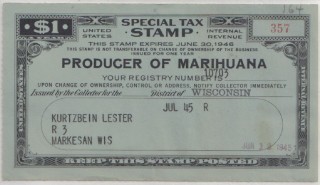 Individuals and companies looking to join the Oregon cannabis market often ask us lawyers whether we know of any licenses for sale. Some of these requests come from states like Washington, where licenses are no longer being issued and are frequently bought and sold. Others come from outside the regulated marijuana space altogether, from people who believe it advantageous to “purchase” a license, rather than start from scratch. Typically, however, Oregon licenses are not bought and sold.
Individuals and companies looking to join the Oregon cannabis market often ask us lawyers whether we know of any licenses for sale. Some of these requests come from states like Washington, where licenses are no longer being issued and are frequently bought and sold. Others come from outside the regulated marijuana space altogether, from people who believe it advantageous to “purchase” a license, rather than start from scratch. Typically, however, Oregon licenses are not bought and sold.
As a preliminary matter, it is important to note that Oregon is a wide-open recreational cannabis market. State licensing fees are relatively cheap, and neither residency requirements nor other challenging barriers to entry exist. Most importantly, there is no cap on the number of licenses issued by the Oregon Liquor Control Commission (OLCC) — a fact that should drive the resale value of licenses down to zero as a basic economic proposition. So, Oregon is an open market where everyone is allowed to compete, and where entrepreneurs, not the state, will determine who succeeds.
During the Oregon cannabis license application process, everyone with a “financial interest” in a cannabis enterprise must be disclosed to OLCC. Having pushed through licenses for a while now, and lots of them, it is our experience that OLCC is flexible with ownership changes mid-stream (before a license is actually issued). After a license is out there in the world, however, the analysis is different: for a proposed change in ownership or business structure, OLCC requires submission of a form for its review, and payment of up to $1,000. If the proposed change of ownership is 51% or greater, a new application must be filed. OAR 845-025-1160(4)(d).
Because of the “new application” rule, licenses are never truly sold in Oregon. Instead, when Party A purchases the going concern of Party B, OLCC attempts to coordinate with both buyer and seller so that the old license is surrendered on the day the new license is issued. Note that Party A cannot take its license to a new locale; licenses are fixed to locations. The surrender/issue protocol is a theoretically simple process, although review is never expedited per se. This is because OLCC will want to vet Party B to ensure that nothing has changed regarding the physical space before it issues a new cannabis business license.
Often, it is attractive for new players to enter the Oregon market via acquisition, and our Portland office has vetted and handled pot business sales on behalf of everyone from publicly traded companies to single-member LLCs. The reason for the acquisition approach is because for certain lines of business, namely retail, locations that work with OLCC distance requirements and local zoning rules are scarcer than before. Thus, anyone interested in entering the Oregon pot market as a retailer may be better served to buy an existing operation, than to try to find an unclaimed space.
Altogether, the Oregon pot licensing system means that what is bought and sold in the state is almost always the cannabis business itself (whether that’s an asset sale or a stock sale) and never the license. Sometimes a premium is paid for a desirable location or other intangible item, but not for OLCC paper. So, if you are vetting a pot deal in Oregon and thinking of paying for the license, think again. Licenses are different here.























